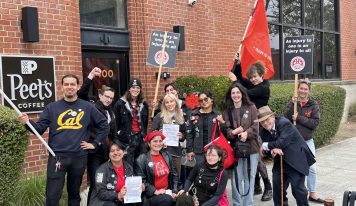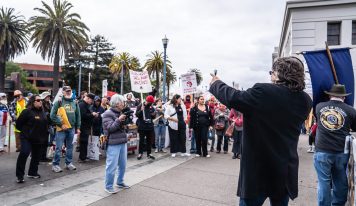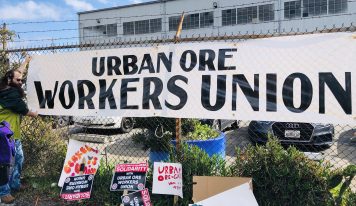City College of San Francisco (CCSF) was created in 1937 to address the educational needs of San Francisco’s working class. The community college has taken its role in the “community” very seriously by making sure that they are focused on giving all San Francisco residents a fair chance in life and the workforce. CCSF caters to students of all ages and backgrounds, and the institution supports those students in achieving both their vocational and academic goals.
“City College of San Francisco belongs to the community and continually strives to provide an accessible, affordable, and high-quality education to all its students. The College is committed to providing an array of academic and student development services that support students’ success in attaining their academic, cultural, and civic achievements,” their mission statement reads. “To enhance student success and close equity achievement gaps, the college identifies and regularly assesses student learning outcomes to improve institutional effectiveness.”
CCSF has been a hotbed of labor activism in recent years. In 2012, the community college nearly lost its accreditation when the Accrediting Commission for Junior and Community Colleges (ACCJCC) ruled that CCSF no longer qualified under their definition of a community college. The American Federation of Teachers (AFT) Local 2121, which represents CCSF’s faculty, fought for five years against the revocation. Many people in the fight felt that the commission had attacked CCSF’s accreditation on trumped-up charges.
“In 2012, the [ACCJC] gave the college a year to prove why it should not lose its accreditation — and then tried to yank the accreditation, months before its own deadline. A Special Trustee with Extraordinary Powers was appointed to bring the college into compliance,” Michael McGown from Labor Notes writes. “The commission hadn’t found anything wrong with the college’s quality of education. Instead, City College had apparently been singled out.”
AFT 2121 responded to this threat by organizing the first faculty strike at CCSF. Not only did AFT 2121 win that fight, but they also secured funding to make CCSF free for SF residents. The “Free City” program is the first free community college program to exist in the United States.
Since the beginning of the COVID-19 pandemic, the fight has been over funding to keep CCSF working. Despite months of protests by faculty and students, the Board of Trustees laid off 38 faculty members and cut hundreds of classes from the schedule in May this year.
In collaboration with the Democratic Socialists of America (DSA) San Francisco chapter, labor unions at CCSF came together to get Proposition O on the ballot. AFT 2121 was joined by Service Employees International Union (SEIU) Local 1021. SEIU 1021, AFT 2121, the San Francisco Building Trades, and Stationary Engineers are all represented on the CCSF Revenue Unity Coalition, which was a collaborative effort by faculty and staff to get this ballot passed. Union leaders have called the proposition the San Francisco Workforce Education and Reinvestment in Community Success Act.
“We have found a very high level of support among San Francisco voters as we gathered signatures to get the initiative on the ballot and as we’ve been phone banking and canvassing,” Maria Salazar-Colón, Education Industry Chair at SEIU Local 1021 and CCSF employee, said. “Unfortunately, corporate landlords who have already been sucking the lifeblood out of this city and pushing out folks like the ones CCSF serves for profit were fast to raise over half a million dollars to fight it to protect their profits, and they have been putting out a lot of disinformation. But we are confident that SF voters can see through their lies and will support Prop O.”
According to the SEIU, this measure would raise roughly $45 million yearly for CCSF to serve its student population. The money would come from a parcel tax on San Francisco property owners. “Proposition O would establish a parcel tax in addition to the current $99 flat tax on San Francisco property owners beginning on July 1, 2023, and continuing until June 30, 2043. The tax would be adjusted annually for inflation,” the proposal reads.
“The funding would help rebuild the programs CCSF students need and want such as the workforce development programs, foundational academics, and so on, including wraparound services that will help people facing challenges completing their degree or certificate program to meet their goals,” Salazar-Colón said. “It is important that everyone keeps the focus on the programs and services that we will be able to provide to all students and not give any thought to the lies that are out there.”
Photo is licensed through Alamy





